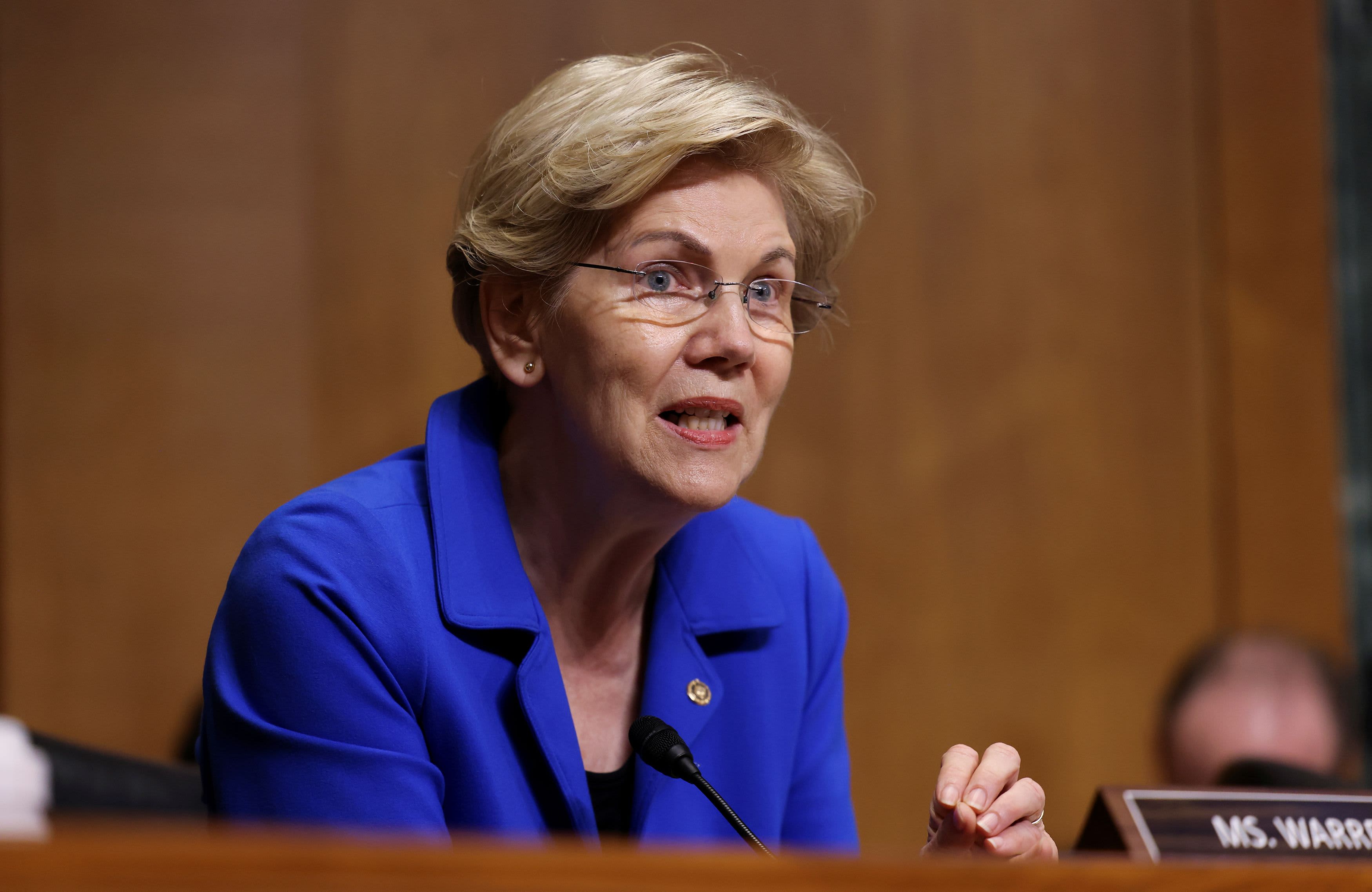Get the weekly summary of crypto market analysis, news, and forecasts! This Week’s Summary The crypto market ends the week at a total market capitalization of $2,17 trillion. Bitcoin continues to trade at around $62,300. Ethereum experiences no changes and stagnates at around $2,400. XRP is down by 2%, Solana by 1%, and Dogecoin by 3%. Almost all altcoins are trading in the red, with very few exceptions. The DeFi sector decreased the total value of protocols (TVL) to around…
Senator Warren Drafts Bill Targeting Russian Crypto Use for Evading Sanctions
US Senator Elizabeth Warren’s fight against criminal misuse of cryptocurrency presses on. The Democrat is reportedly drafting a bill to prevent sanctioned Russian entities from possibly pivoting to crypto rails for facilitating international trade.
A Choice For Exchanges
According to NBC News, the bill will threaten secondary sanctions on foreign crypto exchanges that choose to service sanctioned individuals and groups.
Should they not comply, they would be refused access to the United States, where one of the most active bases of crypto traders and investors preside. In January, Arcane Research released a report showing that 43% of Bitcoin trading activity takes place during US market hours.
Warren gave the rationale for this measure in a letter to Treasury Secretary Janet Yellen last week. It was co-signed by Committee Chairman Sherrod Brown of Ohio, among other officials.
“Strong enforcement of sanctions compliance in the cryptocurrency industry is critical given that digital assets, which allow entities to bypass the traditional financial system, may increasingly be used as a tool for sanctions evasion,” she wrote.

Western nations have united in pulling out every stop to cripple Russia’s economy. The US has sanctioned Russia’s president, central bank, and large institutional banks, while cutting the nation off from SWIFT and freezing its foreign exchange reserves. As of today, the US has even stopped accepting Russian oil exports, according to President Joe Biden.
However, there have also been calls from multiple officials for crypto companies to quit servicing Russian customers. The response from the industry has been mixed: whereas many executives oppose a unilateral freezing of Russian accounts, they have agreed to comply with the law if ordered to do so.
An Overstated Issue?
Though crypto regulation has broadly become a partisan issue, there is strong consensus among both parties on the desire to sanction Russia. As such, even Republicans like Lindsay Graham suggest that crypto is “rearing its ugly head” with how it may enable Russian trade.
Nevertheless, the Treasury Department isn’t too worried about crypto serving many benefits to Russia right now.
“It will be extremely challenging to evade our sanctions without detection,” said a Treasury official.“While there are some deficient exchanges that may be willing to offer services to sanctioned persons and entities, they will not be able to support a large economy.”
Indeed, Bitcoin’s total market cap is less than $800 billion right now. Analysts argue that Russian exchange volume simply doesn’t provide the liquidity to support withdrawals from large, sanctioned governments.
The official added that the Treasury has grown more sophisticated at tracking crypto transactions, which are all recorded on a public blockchain. This makes cryptos like Bitcoin less suited for illegal activity over time, contrary to popular belief.
There is still no evidence that Russia has adopted digital assets for sanction evasion. However, with Russian oil exports hampered, it’s possible that its energy resources could be redirected towards Bitcoin mining. Putin himself has expressed interest in growing the region’s mining sector due to key competitive advantages they have.
BitsCrunch Raises $3.6M in Funding for NFT Analytics Tools
How Do Crypto Anti-Dumping Policies Work?
Written by
More author posts
Publish your own article
Guest post article. Guaranteed publishing with just a few clicks
START PUBLISHING ADVERTISE WITH US





